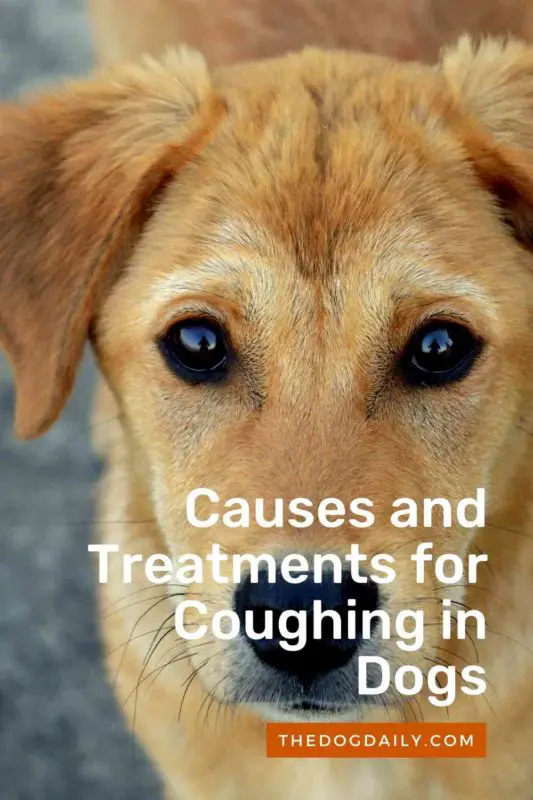Why is My Dog Coughing?
Your dog makes all sorts of noises, and a lot of them probably sound like human coughs. A flu-afflicted person is often described as having a “barking” cough. But dogs can cough too, often sounding like you do when you’re congested and have a cold, or as though they are sneezing in reverse, since they may try to draw in a lot of air instead of forcing it out in a loud “Ah-choo!”
There are many possible causes for doggy coughing, according to Lynelle Johnson, DVM. She is an associate professor at the University of California at Davis, School of Veterinary Medicine. Here is her canine coughing compendium, which includes some of the primary causes for dog coughs, along with associated conditions.
Kennel Cough in Dogs
This illness often results from a combination of viral and bacterial intruders in canine airways. If your dog has a dry, hacking cough, sometimes accompanied by white, foam-like saliva, it could have kennel cough. The most common airborne bacteria linked to kennel cough tend to spread in close quarters, such as dog kennels, boarding facilities, dog parks, or other similar areas. This condition generally lasts one to two weeks and is treated with antibiotics and other prescription medications. Confine your dog until it’s recovered to avoid infecting other animals. And if you must go out during your dog’s recovery period, try using a harness instead of a collar and leash to discourage coughing reflexes.
Chronic Bronchitis in Dogs
This illness is characterized by excessive mucus in the airways that is triggered by inflammation. Smoking can cause canine bronchitis, so if you smoke, never do so near your dog. Pollution, dust, and grains in the environment can also lead to inflammation. Ask your vet about corticosteroids to treat symptoms.
Tracheal Collapse in Dogs
This tends to occur in miniature and toy-size dogs with a flat trachea instead of a round or “C-shaped” one. “When pressure changes within the airway during respiration, it collapses. Sometimes dogs can get infections or bronchitis in addition to airway collapse,” Dr. Johnson says. Treatment may include medication, surgery, or a combination of both.
Heart Disease in Dogs
Congestive heart failure can cause dogs to accumulate fluid in the lungs, leading to coughing, especially at night. Heart enlargement may also cause coughing. Dobermans, Boxers, Cocker Spaniels, and small dogs seem to be more vulnerable to heart disease and related coughing.
Fungal Infections in Dogs
Fungal infections can cause coughing, breathing difficulty, weight loss, and fever. Your dog may require antifungal medications for extended periods, according to Dr. Johnson. Keep dogs away from bird coops and droppings, as these can be fungal breeding grounds.
Parasites in Dogs
Parasites, such as heartworm and roundworms, may also cause your dog to cough. These may be treated with dewormers, preventative pills, and topical medications that your vet can provide.
Foreign Bodies in Dogs
Dogs can ingest various substances and objects, like sticks or foxtails, which can lead to bouts of coughing. These plants may lodge in the gums or rear of your dog’s throat. If that happens, usually a vet’s help is needed to remove them.
Lung Cancer in Dogs
Coughing can be a symptom of this type of cancer, but it is rare in dogs. Nevertheless, it is good to have your veterinarian rule it out as a possibility. Canine lung cancer frequently will metastasize or spread from a tumor elsewhere in the body. If your vet suspects that your dog may have this disease, they could refer you to an oncologist, who can provide more specialized treatment.
Pneumonia in Dogs
This serious illness is marked by “soft” coughing, heavy breathing, and mucus. Pneumonia requires immediate attention, including antibiotics and fluids.
Influenza in Dogs
A virus causes the flu, which is a relatively new disease in dogs. It is a very contagious respiratory infection that in its mild form includes coughing. In severe form, signs of pneumonia are present.
Distemper in Dogs
Again, coughing may be a sign of this devastating, highly contagious viral disease transmitted from an infected dog’s respiratory secretions, urine, or feces. It is easily prevented by vaccination.
Don’t rely on guesswork. If your dog’s bark sounds more cough than “ruff,” seek an expert’s opinion. Your vet can probably help clear the cough so that soon both you and your dog may breathe a sigh of relief.
Article written by Author: Stephanie Stephens


Pingback: What Human Medications Are Most Poisonous to Dogs?